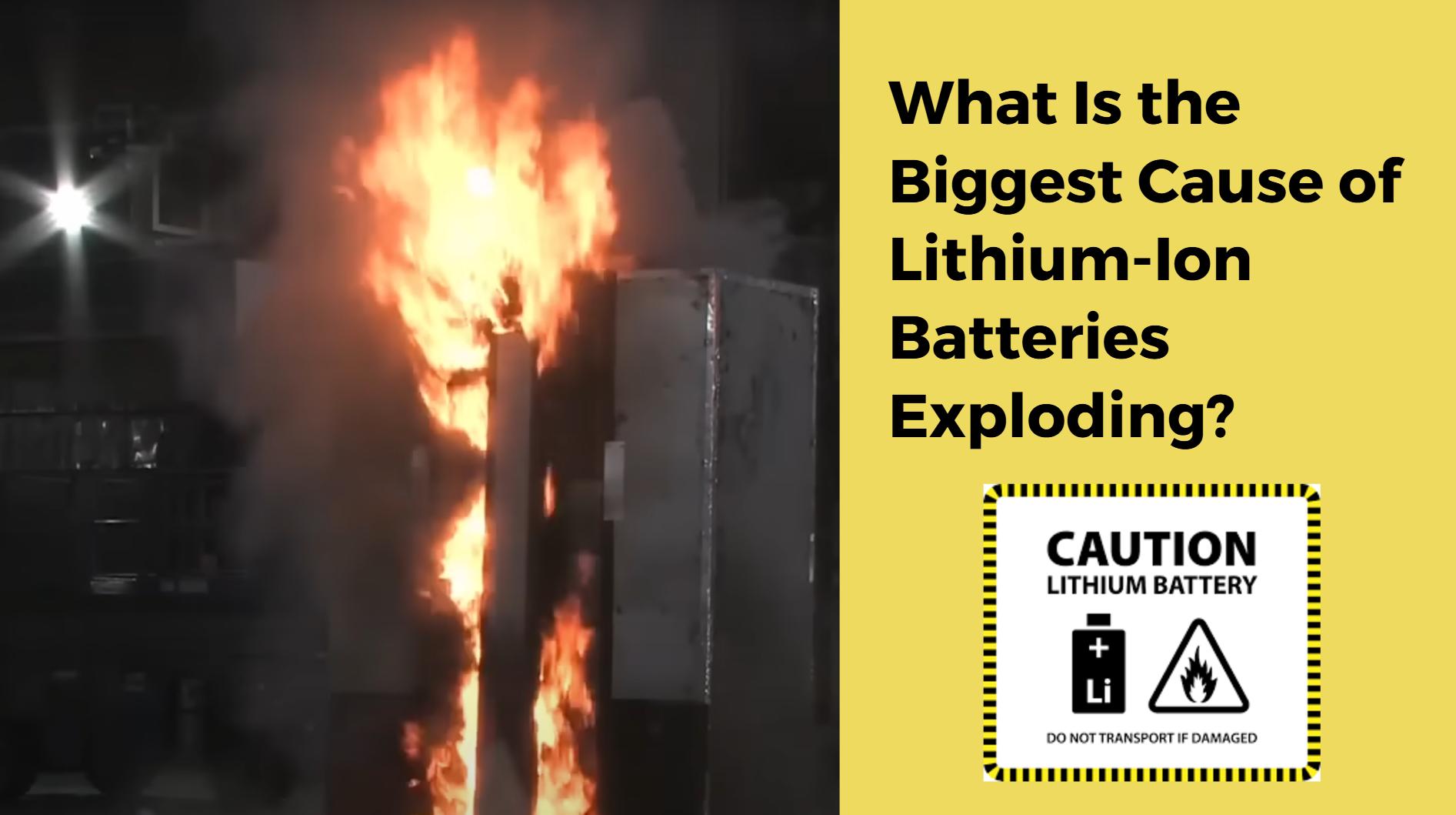
What Is the Biggest Cause of Lithium-Ion Batteries Exploding?
The biggest cause of lithium-ion battery explosions is thermal runaway, a chain reaction triggered by overheating, short circuits, or overcharging. This phenomenon leads to a rapid increase in temperature and pressure within the battery, resulting in violent failures. Understanding these causes is essential for ensuring safe usage and preventing accidents.
What are the main causes of lithium-ion battery explosions?
Lithium-ion batteries can explode due to several factors, including:
- Thermal Runaway: A critical failure mode where excessive heat causes the electrolyte to break down, releasing flammable gases that build up pressure.
- Overcharging: Charging beyond recommended voltage limits can lead to overheating and subsequent thermal runaway.
- Physical Damage: Punctures or crushing can compromise internal structures, leading to short circuits.
- Manufacturing Defects: Poor quality control or substandard materials can introduce weaknesses that increase explosion risk.
| Cause | Description |
|---|---|
| Thermal Runaway | Chain reaction causing rapid temperature rise |
| Overcharging | Excessive voltage leading to overheating |
| Physical Damage | Compromised structure causing internal shorts |
| Manufacturing Defects | Weak components increasing failure likelihood |
These issues highlight the importance of proper handling and manufacturing practices.
How does thermal runaway contribute to battery failures?
Thermal runaway occurs when a lithium-ion cell generates more heat than it can dissipate. This process typically involves:
- Heat Generation: Internal resistance generates heat during normal operation.
- Temperature Increase: If heat exceeds the cell’s ability to cool down, it triggers a breakdown of the electrolyte.
- Gas Release: The breakdown releases flammable gases, increasing pressure within the cell.
- Chain Reaction: A single cell’s failure can propagate through connected cells in a battery pack, leading to widespread failure.
This rapid escalation can result in explosive reactions, making thermal management crucial for safe operation.
What role does overcharging play in lithium-ion battery safety?
Overcharging is one of the most significant risks associated with lithium-ion batteries. When a battery is charged beyond its designed voltage:
- Electrolyte Breakdown: The electrolyte may decompose, generating heat and gases.
- Lithium Plating: Excessive voltage can cause metallic lithium to deposit on the anode, creating dendrites that pierce separators and cause short circuits.
- Increased Pressure: The buildup of gases increases internal pressure, potentially leading to an explosion.
To mitigate these risks, many devices incorporate built-in protection circuits that disconnect charging when full capacity is reached.
How do physical damage and overheating lead to battery incidents?
Physical damage can compromise a battery’s structural integrity, leading to dangerous conditions:
- Punctures or Cracks: Damage can create internal short circuits by allowing electrodes to contact each other.
- Overheating: External heat sources or high ambient temperatures can exacerbate existing issues, pushing cells toward thermal runaway.
- Mechanical Stress: Dropping or crushing batteries may cause unseen damage that leads to failure during subsequent use.
Regular inspection and careful handling are essential for preventing such incidents.
What safety measures can prevent lithium-ion battery explosions?
Several safety measures can help prevent lithium-ion battery explosions:
- Proper Charging Practices: Always use chargers designed for specific devices and avoid overcharging.
- Temperature Monitoring: Keep batteries within recommended temperature ranges to prevent overheating.
- Regular Inspections: Check for signs of physical damage or swelling before use.
- Quality Assurance: Purchase batteries from reputable manufacturers with stringent quality control processes.
- Safe Storage: Store batteries in cool, dry places away from direct sunlight or heat sources.
Implementing these practices significantly reduces the risk of accidents related to lithium-ion batteries.
Why is proper usage critical for the longevity and safety of lithium-ion batteries?
Proper usage is vital for both performance and safety:
- Maximizing Lifespan: Adhering to charging guidelines helps maintain optimal capacity and extends overall lifespan.
- Preventing Failures: Following manufacturer instructions reduces the likelihood of conditions that could lead to thermal runaway or other failures.
- Safety Assurance: Safe handling practices minimize risks associated with physical damage or overheating.
By understanding how to use and care for lithium-ion batteries properly, users can enjoy their benefits while minimizing hazards.
Industrial News
Recent advancements in lithium-ion technology have focused on enhancing safety features and reducing risks associated with thermal runaway. Manufacturers are developing new chemistries and designs that improve heat dissipation and resilience against physical damage. These innovations aim not only to enhance performance but also to address growing concerns about safety in consumer electronics and electric vehicles.
Lithium Battery Manufacturer Insights
“Ensuring consumer safety starts with education about proper usage,” states an expert from a leading lithium battery manufacturer. “As technology evolves, so too must our understanding of how these powerful tools operate safely within our daily lives.”
FAQ Section
What is the biggest cause of lithium-ion batteries exploding?
The primary cause is thermal runaway, which occurs when excessive heat leads to a rapid increase in pressure within the battery, causing it to explode or catch fire.How does overcharging affect lithium-ion batteries?
Overcharging can lead to electrolyte breakdown, gas release, and increased pressure inside the cell, significantly raising the risk of explosion or fire.What should I do if I notice my lithium-ion battery swelling?
If you notice swelling or bulging in your lithium-ion battery, stop using it immediately, avoid charging it further, and safely dispose of it according to local regulations.
Know more:
What Is the Biggest Cause of Lithium-Ion Batteries Exploding?
What Are the Risks Associated with Lithium Batteries?
What Are the Hazards in Battery Manufacturing?
What Are the Dangers of Lithium-Ion Battery Manufacturing?
